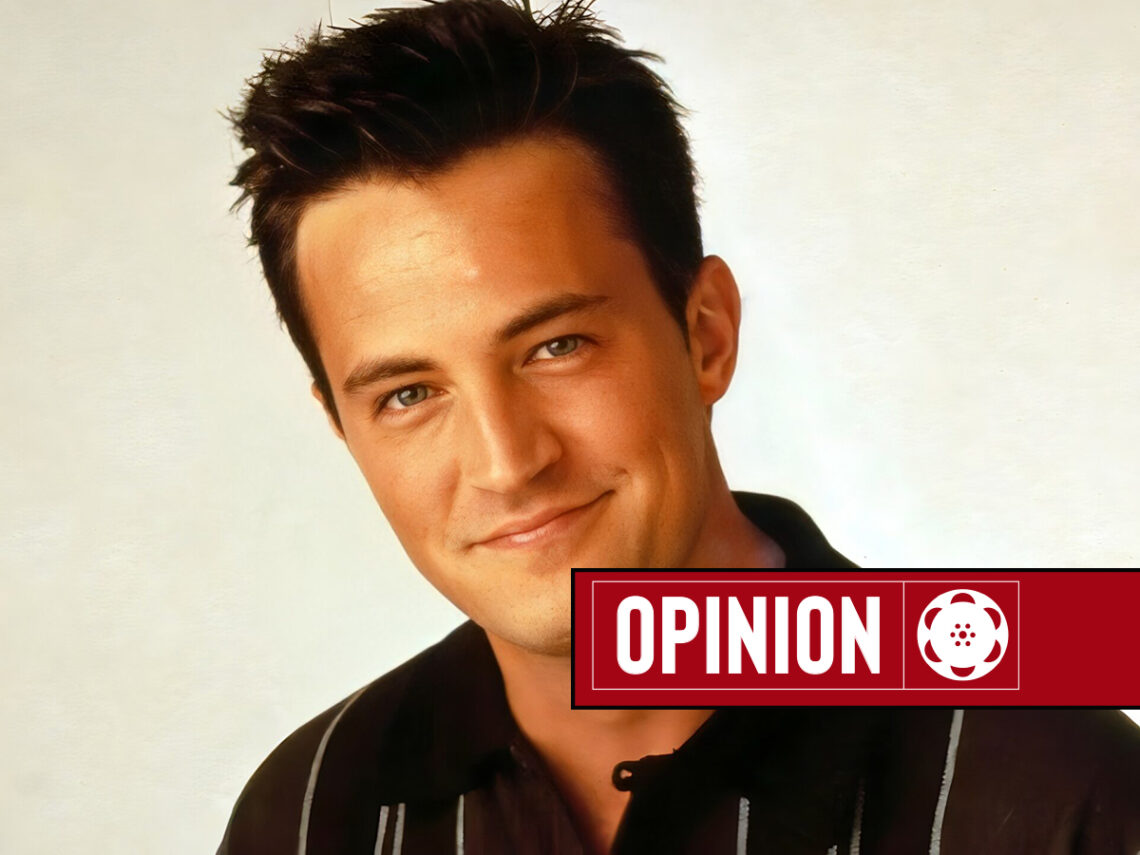On Sunday morning, I woke up to the news of Matthew Perry’s death. This was a shock, but somehow not a surprise. It made me think of how Perry himself had predicted in his memoir Friends, Lovers, and the Big Terrible Thing that the news of his death would be received by most of the world as a shock, not a surprise.
This morning was also a touch different than the rest of my mornings in the past few weeks. The other mornings, like the rest of the world, I have been waking up to the news of Israel’s relentless bombings upon Gaza.
Between news of death and more death, my social media feeds were dotted with dissonant strains of “I’ll be there for you…”, surreal TikToks of Israelis mocking dead and suffering Gazans and humanitarian pages with their earnest endeavours of shedding light on the crises going on in other parts of the world.
“Have you educated yourself about the silent genocide happening in the Democratic Republic of the Congo?” “Are you aware of the mounting tensions in Manipur, compounded by a total internet blackout?” “What is happening in Ukraine today?” “Have you been made aware of the brutal lynching of a Dalit man?” Which Dalit lynching is today’s top news, you ask?” I played the daily game of tic-tac-toe with the unending reel of humanitarian horrors that seems to have become a grim and unwelcome routine for most of us. The horrors keep unfolding in increasingly terrifying manners in all corners of the world.
Passive online activism has its limitations. Engaging in physical, on-the-ground protests carries more weight and potential impact. Perhaps these demonstrations will finally prompt our elected leaders to actually act. All these thoughts swirled in my head as my musings shifted focus—from genocide to a solitary death.
The one where we lost Matthew Perry
Fans, reluctant admirers, and downright haters of the 1990s sitcom, Friends, took a pause worldwide from whatever it is they were doing to dub this Sunday “The one where we all lost a Friend”. Some of them have been relentlessly dedicating all their social media bandwidth to raising either funds or awareness about the situation in Palestine, desperately calling for a cease-fire so that civilians (on both sides) can gather their wits, bury their loved ones, scream somewhere in peace that they may have lost forever.
Some of them wouldn’t be able to binge Friends on their much-needed breaks because every poignant storyline involving Chandler and his “penguins” would trigger another burst of sadness. So, they will be compartmentalising their mourning. Our capacity to live in fragments is boundless. To find joy and celebrate even when there is suffering is the very reason humanity survives. As the belief goes, existence is revolutionary when your oppressors would prefer otherwise, and existence with joy is tremendously more powerful. Celebrating a life that mattered to so many is just an offshoot of that philosophy.
There is nothing wrong in grieving Perry’s death just because we are yet again living in the shadows of genocide. The world has continued to be a troubled place for longer than these past few weeks.
Yes, as long as the troubles are contained within the boundaries of these faraway nations, we get to look the other way. Sometimes to heal our minds, sometimes to do what needs to be done to pay our bills. But with Palestine, the fear looms that the world might wake up to its borders and people wiped off the map of this world. So, it becomes harder to look away, even for a moment.
Palestinians have been displaced in fragments and chunks ever since the Nakba (the Catastrophe) of 1948 when Israel’s occupation began—as depicted in the Palestinian film Farha. Many generations of Palestinian families have lost their homes and loved ones, and their cultural identity erased for decades. And now, “children make up roughly 50 per cent of Gaza’s population of about 2.3 million.” as per Al Jazeera.
When I read about Matthew Perry, I found solace in the collective recognition that 54 is too young to die, no matter what kind of life one lived. Perry’s candid disclosure of his protracted battle with addiction lent a poignant dimension to his legacy. And I was glad to see his legacy beyond Friends living on among those whose lives he touched—everyone is worthy of help, and kindness, and every life has value. Immediately after this thought, my mind turned towards the discord between revering a celebrity we never knew personally, and the wary caution we mete out to the thousands being butchered—almost half of whom are children, children who also had hopes, dreams, and unique flaws worthy of exploration and examination through peacefully lived lives.
It makes sense that Perry was so beloved. After all, as my Editor, Jack Whatley put it, “Perry was beamed into our homes as a source of very personal joy, whereas we detach ourselves from the horrors of the world.”
In the midst of constant global crises and ongoing tragedies, the absurdity lies in our capacity to mourn the loss of a single star while, at times, the world’s collective empathy appears fragmented and incomplete. It’s as if we are watching a magnificent celestial display in the night sky, focusing on a single, twinkling star, while the boundless universe unfolds in perpetual chaos, both breathtaking and bewildering in its vastness. Yet, we find the time and capacity to say farewell to a friend.
